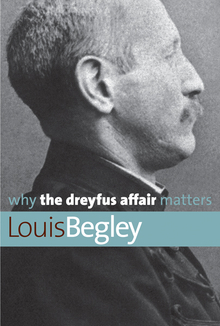Hitler's Compromises
WARNING
You are viewing an older version of the Yalebooks website. Please visit out new website with more updated information and a better user experience: https://www.yalebooks.com
Coercion and Consensus in Nazi Germany
Nathan Stoltzfus
A comprehensive and eye-opening examination of Hitler’s regime, revealing the numerous strategic compromises he made in order to manage dissent
History has focused on Hitler’s use of charisma and terror, asserting that the dictator made few concessions to maintain power. Nathan Stoltzfus, the award-winning author of Resistance of Heart: Intermarriage and the Rosenstrasse Protest in Germany, challenges this notion, assessing the surprisingly frequent tactical compromises Hitler made in order to preempt hostility and win the German people’s complete fealty.
As part of his strategy to secure a “1,000-year Reich,” Hitler sought to convince the German people to believe in Nazism so they would perpetuate it permanently and actively shun those who were out of step with society. When widespread public dissent occurred at home—which most often happened when policies conflicted with popular traditions or encroached on private life—Hitler made careful calculations and acted strategically to maintain his popular image. Extending from the 1920s to the regime’s collapse, this revealing history makes a powerful and original argument that will inspire a major rethinking of Hitler’s rule.
History has focused on Hitler’s use of charisma and terror, asserting that the dictator made few concessions to maintain power. Nathan Stoltzfus, the award-winning author of Resistance of Heart: Intermarriage and the Rosenstrasse Protest in Germany, challenges this notion, assessing the surprisingly frequent tactical compromises Hitler made in order to preempt hostility and win the German people’s complete fealty.
As part of his strategy to secure a “1,000-year Reich,” Hitler sought to convince the German people to believe in Nazism so they would perpetuate it permanently and actively shun those who were out of step with society. When widespread public dissent occurred at home—which most often happened when policies conflicted with popular traditions or encroached on private life—Hitler made careful calculations and acted strategically to maintain his popular image. Extending from the 1920s to the regime’s collapse, this revealing history makes a powerful and original argument that will inspire a major rethinking of Hitler’s rule.
Nathan Stoltzfus is Dorothy and Jonathan Rintels Professor of Holocaust Studies at Florida State University. He has been a Fulbright and IREX scholar in West and East Germany and an H. F. Guggenheim Foundation scholar. His work has appeared in the Atlantic Monthly and Die Zeit. He lives in Tallahassee and Washington, DC.
“A valuable, original interpretation of Nazi rule. Stoltzfus argues that Hitler and his inner circle demonstrated considerable political skill in maintaining a strong base of support. His is a vision of a Hitler constantly looking over his shoulder to make sure that he had the Volk behind him. This is a very compelling new interpretation, beautifully executed.”—Dolores Augustine, St. John’s University
“Nathan Stoltzfus has produced an insightful examination of the occurrence and impact of public dissent in Nazi Germany. He succeeds in answering some significant questions that have occupied generations of scholars.”— Doris L. Bergen, author of War and Genocide: A Concise History of the Holocaust
“This book is based on a wealth of sources. It rehearses various episodes that give us an insight into the relationship between the Nazi regime and some sectors of society, including the Christian churches, women evacuees in wartime and the gentile wives of Jewish German men. This is done in greater detail than in many accounts, and the detail is very illuminating. Its message is that, again and again, Hitler chose to compromise with a group that stood up to him and his regime, rather than risk outright confrontation, especially in wartime.”—Jill Stephenson, University of Edinburgh
“Nathan Stoltzfus is renowned for his groundbreaking work documenting the historic protests by the women of Rosenstrasse in Berlin in 1943. In this fascinating book, Stoltzfus again overturns conventional wisdoms about the Nazi dictatorship, with vivid examples of the impact of resistance and protest even in the harshest of times.”—Steve Crawshaw, author of Easier Fatherland: Germany and the Twenty-First Century and Street Spirit: The Power of Protest and Mischief
“An in-depth examination of the tactical compromises Hitler made in order to consolidate power . . . A lucid work of historical argumentation that succeeds in establishing compromise as a crucial instrument in Hitler's political arsenal.”—Kirkus Reviews
“A masterful examination of Hitler’s real responsibility.”—Choice
“Stoltzfus demonstrates that by pretending to be moderate at key points, Hitler worked to enlist Germans to fulfill his mission of building a New Order, a sobering reminder about the threat posed to any democratic society by a crafty demagogue.”—Jacob Heilbrunn, World War II Magazine
“Indispensable reading for students of the period.”—Open Letters Monthly
“Stoltzfus has elaborated a new perspective on the politics of the Nazi regime.”—Winnipeg Free Press
“This is an impressive book, which will be of much interest and benefit to scholars and students of German history.”—German Studies Review
“A sophisticated and nuanced account of the Third Reich. . . . An impressive book, which will be of much interest and benefit to scholars and students of German history.”—European History Quarterly
"In the end . . . Hitler's Compromises is an exceptionally well-written, cogently argued, and innovative study that recasts our understanding of the Third Reich."—Eric Kurlander, Journal of Modern History
"A significant and highly original contribution to the scholarly literature on the history of the Third Reich."—Holocaust and Genocide Studies
“Though it deals with some?of the darkest events of the twentieth century, Hitler’s Compromises is ultimately a hopeful book, highlighting?how there is political space for dissent, however limited, in even the harshest of dictatorships”— Ian Sinclair, Peace News
“Stoltzfus’s work is a helpful corrective to some popular misconceptions about the Nazi regime”— Richard Weikart, H-Net Review
ISBN: 9780300217506
Publication Date: July 12, 2016
Publication Date: July 12, 2016
432 pages, 6-1/8 x 9-1/4








